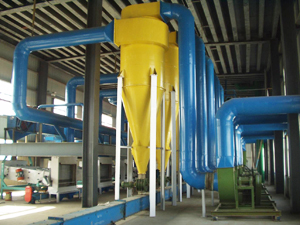A soybean oil factory is essential for efficiently processing soybeans to produce high-quality soybean oil and related by-products. With advanced technology and machinery, these factories can maximize oil yield while ensuring sustainability. This article explores the key operations, machinery, and applications associated with soybean oil production.
The operations involved in a soybean oil factory can be distinctly categorized into several phases:
Proper storage is vital for maintaining the quality of raw soybeans. Factories utilize large silos for storage and transport systems that include conveyors and elevators to move soybeans through various stages.
In this phase, soybeans are cleaned using vibrating screens and de-stoners, ensuring all foreign materials are removed.
This is followed by dehulling, which facilitates oil extraction.
After preparation, soybeans undergo crushing and flaking, followed by a conditioning process to soften them for optimal oil extraction.

Mechanical pressing is utilized in smaller factories, while larger setups often employ solvent extraction methods with hexane for higher oil recovery.
Crude soybean oil undergoes refining to remove impurities through processes such as degumming, neutralization, bleaching, and deodorization to ensure quality and safety.
To achieve optimal production efficiency, several key machines are necessary:
The soybean oil produced has diverse applications:
Establishing a soybean oil factory with efficient processing machinery offers significant opportunities in both domestic and international markets. With proper planning, investment, and technical expertise, companies can achieve sustainable growth in the soybean oil industry.


